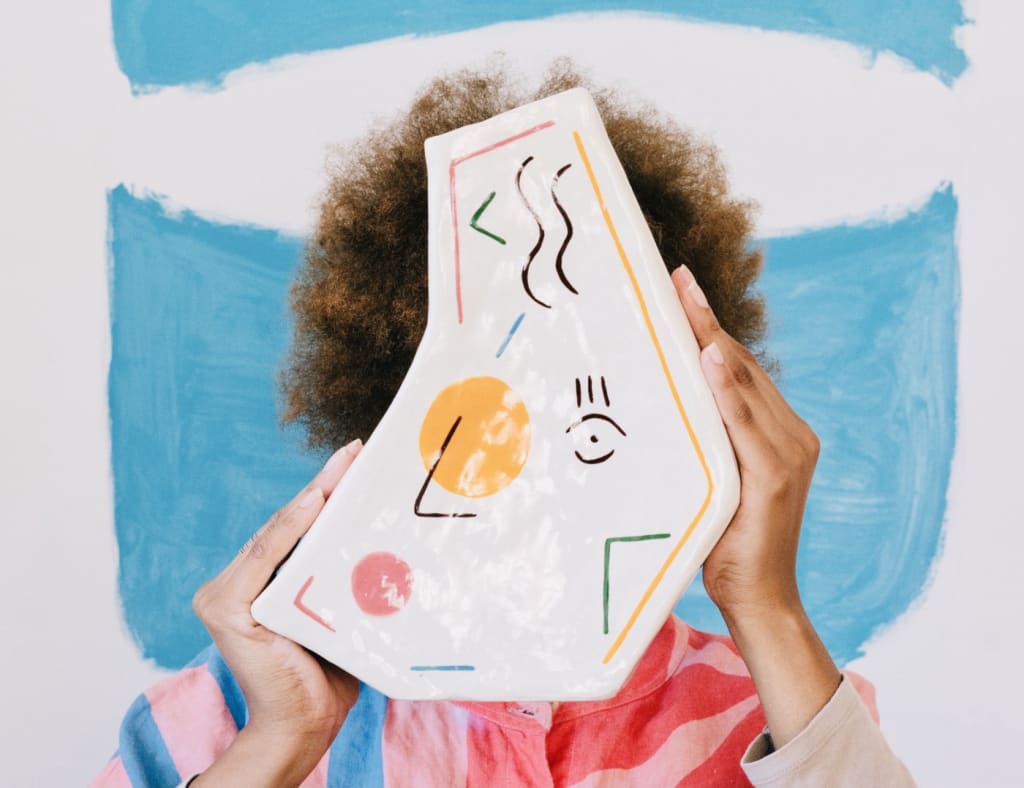The Cult of Creativity
Don't make creativity your life's purpose.

In the design industry, especially throughout school, we’re not encouraged to separate design from the rest of our lives and personalities. Once you begin working in UX design or tech in general, this lack of separation becomes normal and praised.
I saw a Tik Tok the other day, of a girl who broke down crying, when she realized that she’d thought her life’s purpose was to be a UX Designer. And how ridiculous she’d felt about feeling this way. Is it ridiculous? No. But it’s made to feel like a prerequisite to entry. That working in this field is a calling, a purpose, something higher than ourselves. Without sounding dramatic, I couldn’t help but see myself, and this entire industry in her.
These feelings have sprung up a lot more recently since joining Clubhouse. I’ll be the first to say, I enjoy the app. But, I find myself getting sucked into many of the same ideas I’d desperately tried to free myself from once I left design school. The cult-like feeling of being a UX Designer. The feeling of everyone’s life revolving around this and nothing else. The dismissal of other interests. The idea that UX design is a purpose or personality trait. I’m not sure this is a healthy view of any career. This one is for those of us who enjoy UX design but don’t feel like it’s an inherent part of who we are.
The Passion
UX Design skills are marketed as a super-power.
I always felt like my “lack” of passion is why I’d never been a good UX Designer. But, I’m a very passionate person. I don’t do anything I don’t enjoy doing.
But why is it, within tech, we’re not allowed to see what we do as a job?
Throughout much of my education, I felt UX design was sold as something for the passionate, creative and empathetic. We’re a group of people who design for users, interview them and create for their feelings. UX Design was marketed as some sort of superpower. It’s blasphemous to even acknowledge how much we’re paid.
We’d have talks with designers focusing on sustainability, poverty, racism, sexism and, all of the -phobias. You name it, we’d created an app to solve it. At the risk of coming across as cynical, why have we decided UX Designers are the peak of empathy? It’s almost a bait-and-switch. We’re sold the fantasy of our talents being all about selflessness, and then come into this industry to work for Amazon or Facebook. Who did we save?
We ask each other how we spend our free time improving our design skills. In other words, what are the ways we continue to strengthen our powers so we can save the world?
The Problem
It’s a superiority complex that feeds itself by believing it’s philanthropic.
At the risk of coming across as exactly who I’m writing to criticize, why is this a problem? If we want to create a bunch of jaded, egotistical designers who believe wireframing can save the world, who are we to stop them?
The problem is in the very passion itself.
If there is any problem that we believe is solvable by an app or website, it’s already only working to help the 1%. Or ourselves. It’s already not as helpful as we think. And in a world where we have ego-driven problems, with ego-driven solutions, our ego-centric saviour complex does nothing to actually help. It’s a superiority that feeds itself by believing it’s philanthropic.
The Prose
We have too many of the same kind of people swimming around in the same pool of ideas.
Much of the feelings of working in this industry feel like prose. An endless stream of consciousness from one person to another, that’s all beautiful and grammatically correct, but ultimately meaningless. I’ve written before about the existentialism I experience working in this industry, but this is an issue I feel we can solve.
What do we do about this cult of creativity?
The ultimate reason for the lack of perspective is the barrier to entry.
We have too many of the same kind of people swimming around in the same pool of ideas. We don’t have enough of a diverse group to even scratch the surface of the scope of our skills. We also don’t have enough reality embedded in the system to realize not everything is solvable through user experience design.
At the very core of understanding users, understanding empathy, and understanding the world: is realizing we are not the missing piece. Wireframing is not the long-awaited hero that’s going to end poverty.
Maybe, the reason I and that stranger from Tik Tok don’t feel the same purpose in UX Design is that we’re outside of this group. I’m marginalized enough to see that we haven’t yet scratched the surface of solving real problems.
If you’re new, I don’t want to discourage or dissuade you from working in this field. It is remarkably rewarding. And without counteracting everything I’ve previously said, there is a lot of room to elicit positive change with tech and design.
I’m writing this for designers like myself. Those who aren’t working at the FAANG companies, who may not want to, but still would like the validation of doing so. Who love what they do, but don’t feel particularly drawn to the culture. You belong in this industry, and your experience is valid.
This industry may not be perfect, but it is large. There’s space for us too.
About the Creator
Lena Simons
I need lots of external validation to keep myself going each day.






Comments
There are no comments for this story
Be the first to respond and start the conversation.